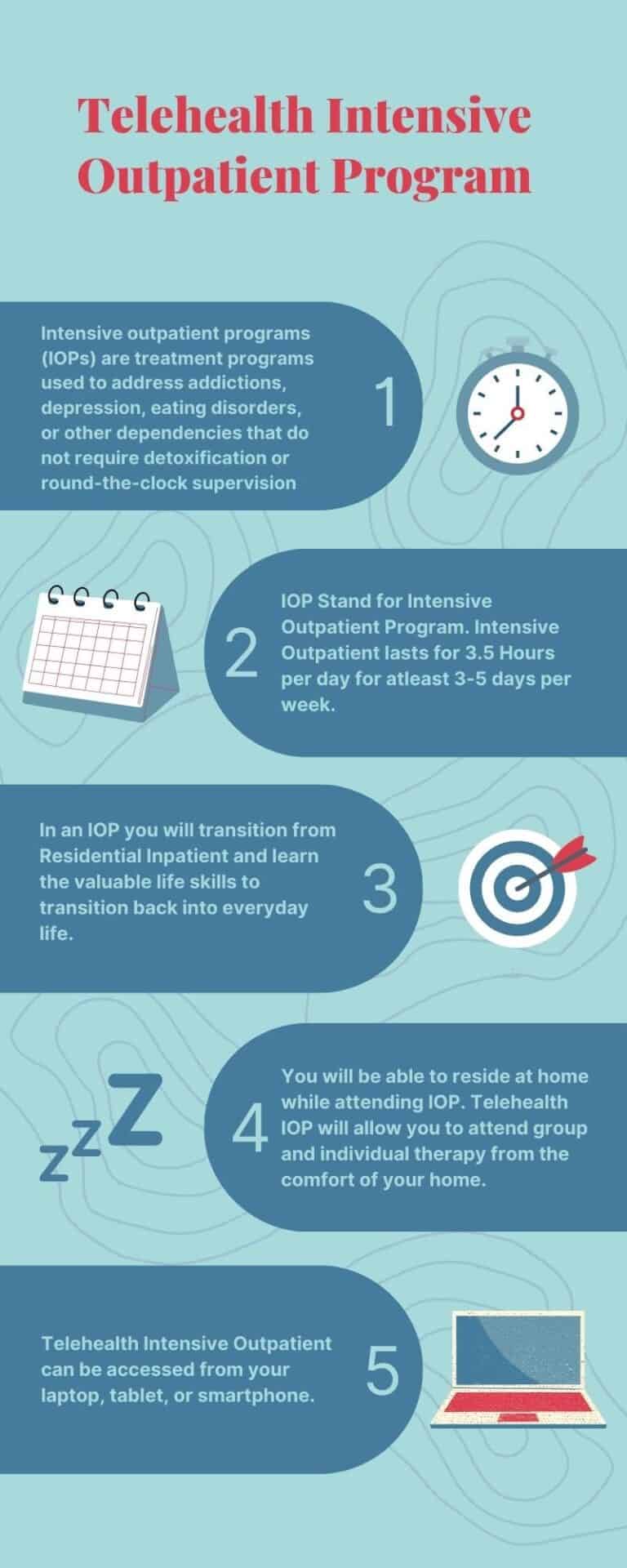The Influence of Holistic Therapies on Mind-Body Recovery in an Intensive Outpatient Program
In the realm of extensive outpatient programs, the incorporation of alternative treatments has sparked considerable interest and dispute amongst professionals in the area of psychological health and wellness and health. The potential synergy in between traditional therapeutic methods and all natural practices in promoting holistic health remains a subject ripe for exploration and analysis.
Integrating Holistic Therapies in IOP
Integrating holistic treatments right into Intensive Outpatient Programs (IOP) can improve the general health and therapy outcomes of individuals seeking psychological wellness assistance. Holistic therapies concentrate on treating the whole individual, resolving not only the symptoms but likewise the underlying sources of mental wellness issues. By incorporating techniques such as yoga exercise, reflection, art treatment, and acupuncture right into IOP setups, individuals can experience an extra thorough approach to their treatment.

Advantages of Yoga Exercise and Meditation
By infusing IOP setups with alternative treatments like yoga and reflection, individuals can access a variety of benefits that contribute to their psychological and emotional health. Additionally, yoga exercise enhances self-awareness and promotes a feeling of inner tranquility, which can be specifically useful for people undergoing extensive outpatient treatment.

Acupuncture for Mind-Body Recovery
Acupuncture, a conventional Chinese medicine method including the insertion of slim needles into certain points on the body, uses an one-of-a-kind approach to mind-body healing by targeting energy circulation and advertising holistic health. This ancient technique find out here now is based on the concept of Qi, the body's vital force, moving along meridians or paths. By stimulating specific acupoints, acupuncturists intend to bring back the equilibrium of Qi, which is thought to be important for total health and wellness and wellness.
In the context of mind-body healing, acupuncture has shown encouraging lead to lowering anxiety, stress and anxiety, and clinical depression by controling the body's physical reaction to these problems. Research recommends that acupuncture can help launch endorphins, the body's all-natural pain relievers, and control neurotransmitters to boost mood and emotional health. Additionally, acupuncture sessions are usually accompanied by a feeling of leisure and calm, which can add to a much more balanced psychological state.
Additionally, acupuncture is increasingly being incorporated right into Western medicine methods to enhance conventional treatments for different psychological wellness conditions, providing a holistic strategy that thinks about the interconnectedness of the body and mind in promoting healing and wellness. Intensive Outpatient Program (IOP).
Mindfulness Techniques in Therapy
Broadening on the realm of all natural therapies, mindfulness strategies play an essential role in treatment by promoting a deeper connection between the body and mind for general health. Mindfulness, rooted in ancient reflective practices, entails taking notice of today minute non-judgmentally. In the context of an extensive outpatient program, including mindfulness strategies can aid people create self-awareness, manage feelings, and reduce stress levels. Through mindfulness meditation, individuals can grow an enhanced feeling of understanding of their thoughts, sensations, and physical sensations, promoting a higher understanding of the interconnectedness in between physical and mental health.
Mindfulness methods can additionally help in breaking the cycle of negative thought patterns and habits that might add to psychological health and wellness difficulties. By encouraging people to observe their ideas without attachment or judgment, mindfulness cultivates a sense of approval and empathy towards oneself (Intensive Outpatient Program (IOP)). This method can result in enhanced psychological durability, enhanced coping devices, and a greater feeling of internal peace. Ultimately, incorporating mindfulness techniques right into treatment strategies can equip people to actively participate in their recovery trip and advertise alternative well-being.

Examining Alternative Treatments' Efficiency

Qualitative analyses, on the More Info other hand, include collecting subjective feedback from participants concerning their experiences with alternative interventions. This qualitative data can use valuable understandings right into the regarded advantages of these therapies on individuals' general health, high quality of life, and coping devices. By combining quantitative information with qualitative feedback, researchers can gain an extra alternative understanding of the efficacy of these treatments in promoting mind-body recovery within an intensive outpatient program. Such evaluations are crucial for notifying evidence-based practices and enhancing holistic therapy approaches for individuals looking for thorough health.
Final Thought
To conclude, the assimilation of holistic treatments such as yoga exercise, meditation, acupuncture, anchor and mindfulness techniques in an extensive outpatient program can have a substantial influence on mind-body healing. These treatments offer an even more detailed approach to treatment by dealing with the physical, psychological, and spiritual elements of a person's health - Intensive Outpatient Program (IOP). Evaluating the efficacy of these alternative treatments is critical in recognizing their potential benefits in enhancing the general healing process for people in an outpatient setup